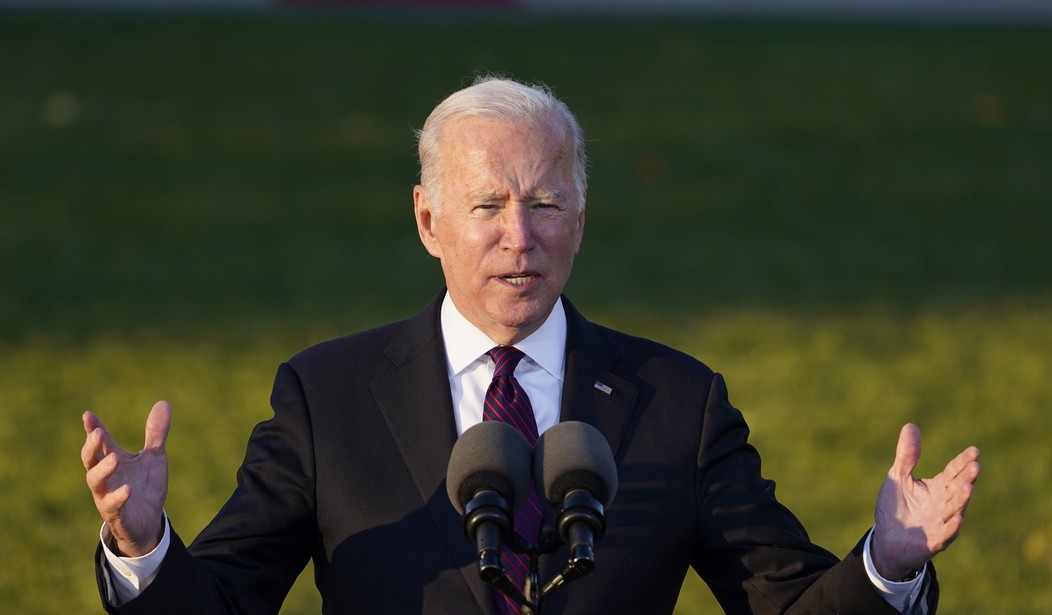It is no secret that the costs of prescription drugs are very high in the United States. Studies from Harvard Medical School indicate that one in four American patients have foregone a prescription because the cost was too high. With the costs of everything else beginning to rise due to the pandemic, inflation, and the global supply chain crisis, it is even more possible that more Americans will have to choose between treating their illnesses and affording basic necessities. This is unacceptable.
Access to medicine and prescriptions is a problem that touches many families in the United States. Naturally, lawmakers are trying to ameliorate this problem through legislation. Unfortunately, the prevailing proposal on Capitol Hill is a set of command-and-control policies slipped into the “Build Back Better” reconciliation spending plan. The plan would implement restrictions and price controls on the market. This would actually harm the companies most likely to offer affordable solutions, generic and biosimilar drug manufacturers.
Generic drugs are manufactured very similarly to brand name products. They have the same active ingredient as their branded competitor and are often very similar in other characteristics, such as safety, strength, and intended use. Biosimilars are manufactured to have the same impacts as the branded drug, but are more complex in their manufacturing to be considered as identical in the way generics are.
Generics and biosimilars come to market to compete with the brand name alternative once the initial patent expires on the brand name product. Generics and biosimilars are most notable because of their prices. According to the Food and Drug Administration (FDA) data, generics are on average 80 to 85 percent less expensive than branded drugs, and biosimilars are roughly 10 to 37 percent less expensive.
Creating more competition in the market between branded drugs, generics, and biosimilars will be key to any strategy to lower the prices of prescription medicines. During the years-long period where the branded drug has market exclusivity, generic and biosimilar manufacturers need to be able to reliably forecast the market to hit the ground running when market access begins. Price controls and government negotiations that are based on changing benchmarks and arbitrary numbers erode that ability. Generics and biosimilars will be left in the dark in terms of what type of investment is needed to create a successful, widely available product.
Recommended
Price controls shift demand, drastically alter supply calculations, and obscure the true value of medications already available. Such proposals reflect a fundamental misunderstanding about the nature of prices. Prices are merely a signal of value from consumers and suppliers based on a host of factors. Price controls treat the symptoms of what’s wrong with the current system, but not the underlying cause. That would be like shutting off “low battery” notifications on your phone instead of plugging your phone into a charger. If generics and biosimilars can’t read the signals that prices send and the market behavior that follows, they will be at a severe disadvantage when it comes time to market their products.
These price controls come in the form of government “negotiations” with drug manufacturers. First, a negotiation is hardly fair or based on actual value when one party is the government, which has a monopoly on force and threatens punitive action should talks fall through. Proponents of the plan tout the fact that negotiation benchmarks will be tied to international market valuations. However, international markets are substantially different from the American one. In the U.S., patients have more access to newer medicines, which is partly responsible for higher prices. This negotiation further obfuscates value and will lead to decreasing availability and investment. Generics will bear this shift heavily.
Another price control in the package is an inflationary penalty. This penalty would implement a steep tax on drug manufacturers who raise the price of their drugs faster than the rate of inflation. First, this will incentivize drug makers to come to market at a higher list price to hedge their bets, in case a price hike might be needed in the future. That is because labor supply, manufacturing costs, and supply chain shortages – like those we’re seeing now – can increase costs faster than inflation. This would necessitate a change, but without the ability to make it, prices would have to start astronomically high to protect investment.
Secondly, such a percentage-based benchmark would disproportionately impact generic drug makers, whose prices are already far lower. Because of the discrepancy, a minuscule price hike by a generic would trigger the penalty. This provision is not an incentive to lower prices; instead it’s an incentive for brands to start high and a punishment for the manufacturers that are offering affordable medicines.
Competition is the surest way to lower the price of any product on the market, and prescription drugs are no exception. Generic and biosimilar drug manufacturers have been helping offer far more affordable alternatives for years. While lawmakers in Washington think they are going after pharmaceutical companies charging the highest prices, the manufacturers of all life-saving medications will be impacted. The biggest price of all, however, will be paid by the patients and families that rely on them.

























Join the conversation as a VIP Member